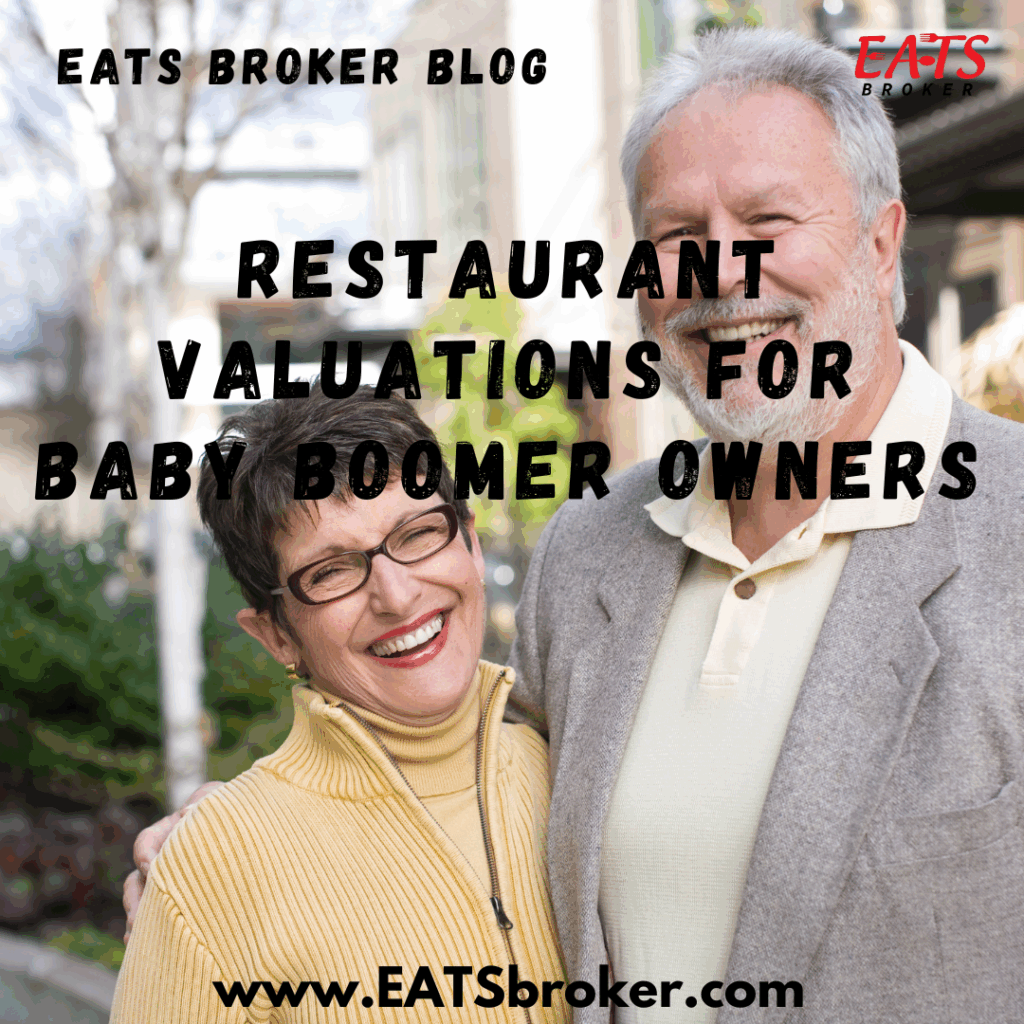Restaurant valuation is a specialized process combining financial analysis, industry knowledge, and industry-specific knowledge. Working with a professional restaurant broker becomes essential for Baby Boomer restaurant owners looking to sell a restaurant. As Baby Boomers start thinking about retirement or transitioning into the next phase of life, one critical question arises: What is my restaurant worth?
Determining your restaurant’s value isn’t as simple as looking at gross sales or guessing based on what you need or want. Restaurant valuation is a specialized process that combines financial analysis, industry knowledge, and local market expertise. This is where working with a professional Restaurant Broker becomes essential.
The Dallas Restaurant Broker Dominique Maddox says, “Seller’s Discretionary Earnings (SDE) and EBITDA are the foundational metrics for calculating a business’s true cash flow, especially for securing financing like SBA loans”.
The three primary restaurant valuation approaches are.
1. Asset-Based Valuation (Replacement Value) focuses on tangible and intangible assets, including goodwill minus liabilities. This method looks at the value of tangible and intangible assets: kitchen equipment, furniture, leasehold improvements, and location. Restaurant owners will purchase assets of a restaurant to convert it to a new concept and save on build-out costs.
Fully built-out restaurants are referred to as “second-generation” restaurants. The locations usually close or fail, where the value lies primarily in used equipment and lease terms rather than cash flow. In these cases, sellers recover generally only a fraction of their original build-out cost and investment. Restaurant owners can expect to recover pennies on the dollar.
2. Income-Based Valuation (evaluating earning potential, often via Discounted Cash Flow or SDE multiples)
This method is the gold standard in restaurant valuation for Restaurant Brokers. Buyers and lenders, especially those offering SBA loan programs, want to know how much cash flow the business generates.
•Owner Benefits (Seller’s Discretionary Earnings or SDE) include salary, perks, and add-ons such as health insurance or personal expenses the business pays.
•Once calculated, this number is multiplied by an industry multiple (often 2–3x depending on concept, location, franchise or non-franchise, and risk).
Formula: Owner Benefit × Multiple = Restaurant Valuation
This method reflects the restaurant’s earning potential and is the most reliable way to set an asking price.
Restaurant Broker Tip: Restaurant Valuations should not include off-the-books income. It can’t be included if the seller doesn’t report the money on the tax returns.
3. Market-Based Valuation (using comparable sales and industry ratios)
Experienced Business Brokers or non-industry professionals will use this method. Like how homes are valued, this method compares your restaurant to other businesses that recently sold in your market. To estimate value, a broker looks at industry data, ratios (like percentage of gross sales), and local demand.
While it can provide useful benchmarks, it’s not reliable. Restaurants vary too widely in profitability, lease terms, and operations for sales comps to be the sole factor for restaurant valuation.
Why DIY Restaurant Valuation Can Cost You Thousands
Some owners try to price their restaurant themselves using quick shortcuts like a percentage of annual gross sales. This unsophisticated approach often results in overpricing (causing listings to sit on the market for months) or underpricing (leaving money on the table).
Even more dangerous? Relying on “off-the-books” cash. Buyers and banks will not accept unreported income when determining value. If a seller says, “I pocket an extra $50K in cash,” it can’t be verified—and it may even raise red flags about tax fraud.
The Role of a Restaurant Broker in Restaurant Valuations
- Recast financials to show valid owner benefit with legitimate add-backs.
- Understand market multiples and how they vary by restaurant type, geography, and concept.
- Factors in lease terms, location, and competitive conditions directly impact value.
- Present a professional, credible valuation that buyers and lenders will trust.
If you’re considering selling your restaurant in the next 1–3 years, the best time to get a restaurant valuation is now—while you still have time to make strategic improvements and maximize your exit.
A professional Restaurant Broker ensures your valuation reflects not just numbers on paper, but the actual market worth of your business.
👉 Thinking about selling your restaurant? Contact EATS Broker today for a confidential valuation. With specialized experience in selling restaurants, bars, and franchises, we help Baby Boomer owners exit on their terms and secure the legacy they’ve built

